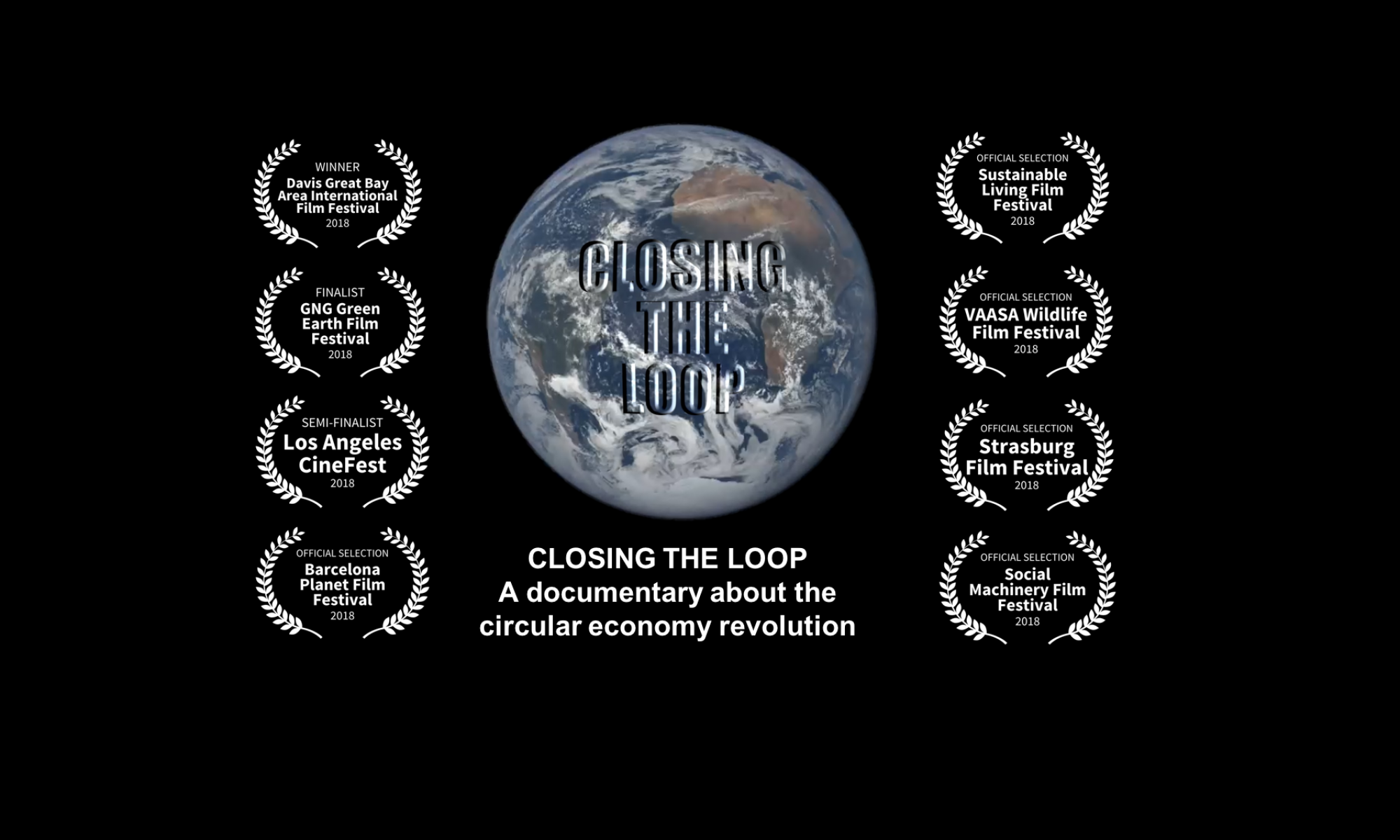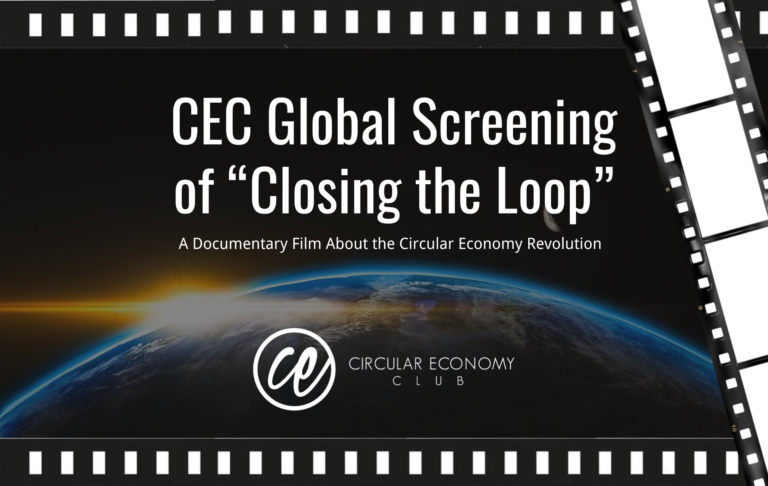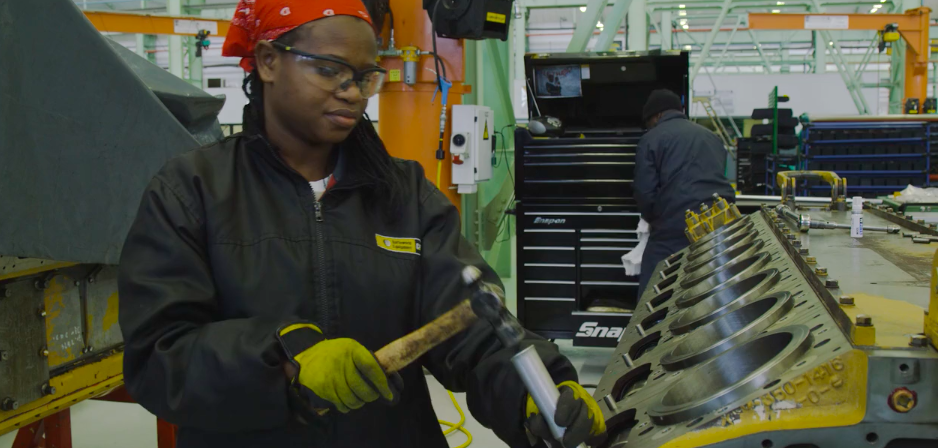CIRCULAR ECONOMY CLUB (CEC) GLOBAL SCREENING OF ‘CLOSING THE LOOP’ DOCUMENTARY IN OVER 70 LOCATIONS WORLDWIDE
The Circular Economy Club (CEC) has partnered with the creators of “Closing the Loop” — the first, feature-length documentary to examine the circular economy movement — to orchestrate a worldwide screening of the film in more than 70 locations in over 30 countries between March 4-10, 2019. Organizers hope to leverage CEC’s active presence in more than 100 countries and inspire both dialogue and action.
LONDON —The Circular Economy Club (CEC) is joining forces with the makers of the world’s first, feature-length documentary film on the circular economy.
“Closing the Loop,” a critically acclaimed film directed by two-time Telly® Award and Emmy® Award-winning filmmaker Graham Sheldon, was publicly released on Earth Day (April 22) last year. The documentary — co-produced by Kaleidoscope Futures and presented by global sustainability expert Professor Wayne Visser — contains urgent warnings for humanity, but also innovative and optimistic solutions.
In an effort to inspire conversation and mobilize those who champion the circular economy, the CEC organized viewing opportunities of “Closing the Loop” in worldwide this week, between March 4-10, 2019. Specific screening locations are determined and listed at the CEC website.
The documentary — made in part to support the United Nations Sustainable Development Goals, (especially Goal 12 on Responsible Consumption and Production) — explores five key strategies for achieving circularity: reduce, reuse, recycle, renew and reinvent. It features insight from a cross-section of experts, including voices from the World Economic Forum and the Universities of Cambridge and Harvard, as well as stories from Europe, Latin America and Africa.
“The CEC’s global screening of ‘Closing the Loop’ aims to raise awareness worldwide,” says Anna Tarí, CEC Founder. “It’s through the evocative medium of film that we hope to inspire and educate audiences globally, and invite everyone to join the circular revolution.”
Professor Visser adds: “The circular economy is only a real solution if it is an inclusive solution for everyone, everywhere. That is one of the key messages of ‘Closing the Loop,’ and that is also why we are so delighted to be partnering with the Circular Economy Club, with its bottom-up approaches and the powerful global network of advocates. Together, we can and must spread the message widely to make the world circular.”
What: CEC Global Screening Week: “Closing the Loop”
When: March 4-10, 2019
Where: Globally in different locations
Information: https://www.circulareconomyclub.com/cec-global-screening-of-closing-the-loop/
About the Circular Economy Club (CEC)
The CEC, a finalist for the 2018 United Nations Sustainable Development Goals (SDG) Action Awards, is a nonprofit international network of more than 2,800 circular economy
professionals and organizations in 80-plus countries. The organization is
headquartered in London, run voluntarily, open to all and free to join. For
more information or to join, visit www.circulareconomyclub.com.
For more information:
Circular Economy Club (CEC) | Media Kit
Contact: Daniel Hiestand
E-mail: daniel (at) circulareconomyclub (dot) com | Phone: +1 (718) 374-2761


